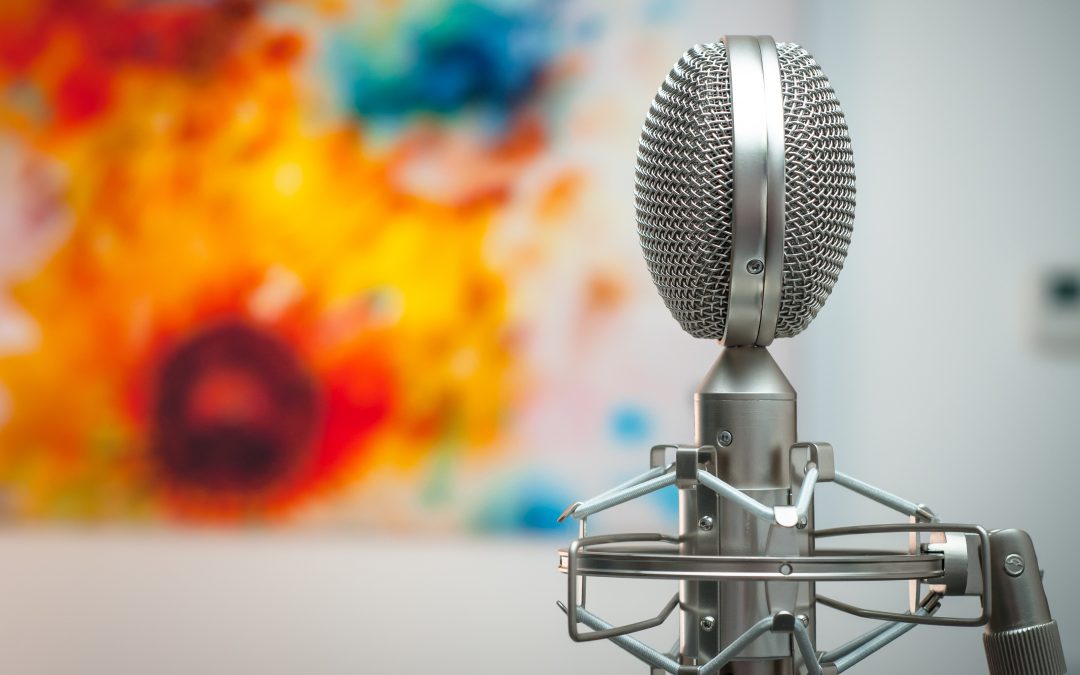This week, I’m thrilled to have cozy mystery author and podcaster Alexandra Amor on the blog to talk about podcasts. If you love podcasts as much as I do, or even more, if you have considered starting one, Alexandra’s post has lots of rich information and advice.
(Note, there are affiliate links below, so if you make a purchase, I get a commission at no extra cost to you. Those commissions help me pay the cost of keeping this website, so thanks.)
If you’re looking for an easy-breezy, quick and painless marketing strategy for your books, I’ll offer a spoiler right now and tell you podcasting ain’t it.
Why Podcast?
Now that we’ve got that out of the way, let’s talk about why it could possibly be a good idea for you, dear author.
Know Like and Trust
All the shouty internet marketers have been telling us for years that when people know, like and trust us, they’re more likely to buy from us. As a relationship-builder with your fans podcasting is second-to-none. Hearing the sound of your voice builds a personal connection with readers that the written word alone can’t match.
The Rise and Rise of Audio
Audiobooks have had double-digit growth in the books marketplace for the last few years. Now that we all carry a computer in our pocket, listening to audio has never been easier. For this reason, the popularity of podcasts is exploding as well. All the cool kids have a podcast, including Michelle Obama, David Tennant and Brené Brown, to name but a few. Seth Godin even refers to podcasting as the new blogging. You may or may not have audiobook versions of your novels, but either way, tapping into the audio market can do your author brand no harm.
Storytelling
You’re a storyteller. Verbal storytelling is the oldest form of our art. Humans are wired to want to hear stories. Telling your stories in audio format, or highlighting someone else’s, can be a very natural part of being a writer and a creative person. (This also ties back into point #1 above.)
The Challenges
Even though there’s lots of upside to podcasting, as I mentioned in the spoiler at the top, it’s not a marketing strategy that is for the faint of heart. So let’s talk about that for a minute.
Getting Off the Ground
Just as an aircraft burns a huge amount of its fuel on takeoff, so a podcast is a big project to get off the ground. There’s a fairly steep technical learning curve involving equipment, hosting, booking guests (when no one has heard of you and you have exactly zero episodes to offer as examples) and figuring out how all the pieces fit together.
But! Here’s the thing about all that: you figured out how to write (and possibly publish) books, which is something most people never do. So I’m certain that if you want to host a podcast you can figure out how to do that as well.
It’s a lot of work
I’m not going to sugar-coat it; hosting a podcast is a lot of work. About 4 hours can go into creating a little over 30 minutes of audio for a show. There’s work at the front-end finding guests and then scheduling them (if you decide to have a show with guests). Once the show is recorded the real work starts with editing the audio and stitching different pieces together, like your intro etc. Then you should probably also have a corresponding blog post so that all that work is searchable on the ‘net. And finally, you need to promote the darn thing. See? A lot of work.
Consistency
Listeners like consistency so you need to release episodes regularly and also when you say you will. Flakes need not apply. Joanna Penn from The Creative Penn talks about how when she took her podcast from being ad hoc (i.e., whenever she felt moved to do an interview) to weekly, her audience numbers surged. And my personal experience has been that when podcasts don’t stick to a regular schedule and I can’t rely on them, I tend to stop listening. Given that you’re writing books and likely have editorial deadlines constantly looming, you may not want another time pressured commitment in your life.
The Rewards
Discouraged? Sorry about that! Let’s hop back over to the sunny side of the street and discuss the deeper, more underlying rewards of podcasting.
Personally, I love that each week I get to put something creative out into the world. Books can take months to write, but having a weekly podcast means I have a project each week that partially fulfills my desire to create.
My podcast has also created a community that I wouldn’t have without it. Writing is a very solitary profession. Connecting with others on a podcast can go a long way to alleviating the loneliness that can sometimes come with the job.
There are as many ways to host a podcast as there are stars in the sky. You could do an interview show. You could serialize your books. You could focus on a small, nerdy aspect of your life and explore that. Whatever you love, there’s an audience for it. My one suggestion would be to have the show tie in somehow with your books so that you’re speaking to the same audience that is reading them.
Like any marketing strategy, podcasting is one that works when it is employed with joy and authenticity. It’s also a long-term strategy that doesn’t often reap immediate rewards, but can be deeply satisfying over months and years…just like writing books.
PS: If you’d like to explore this idea further, I highly recommend Joanna Penn’s book Audio for Authors: Audiobooks, Podcasting, and Voice Technologies.*
 Every Monday, Alexandra Amor hosts It’s a Mystery Podcast where mystery authors like ACF Bookens read from their books and give readers a behind-the-scenes peek at their inspiration and creative process. Alexandra is the author of an award-winning memoir about ten years she spent in a cult in the 1990s (yes, really). When she’s not watching the latest episode Jennifer Garner’s Pretend Cooking Show on Instagram you will find her working on the next book in her Freddie Lark mystery series.
Every Monday, Alexandra Amor hosts It’s a Mystery Podcast where mystery authors like ACF Bookens read from their books and give readers a behind-the-scenes peek at their inspiration and creative process. Alexandra is the author of an award-winning memoir about ten years she spent in a cult in the 1990s (yes, really). When she’s not watching the latest episode Jennifer Garner’s Pretend Cooking Show on Instagram you will find her working on the next book in her Freddie Lark mystery series.

